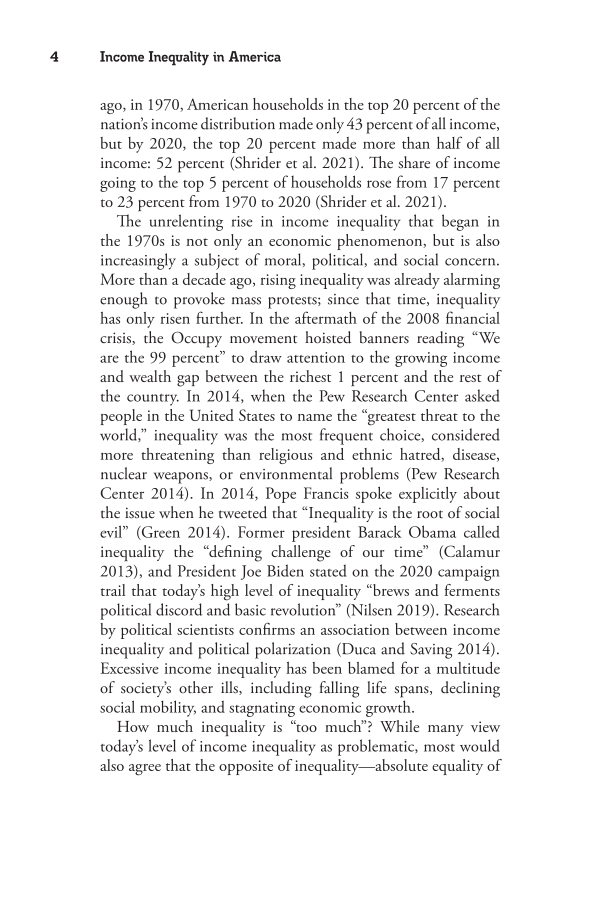4 Income Inequality in America ago, in 1970, American households in the top 20 percent of the nation’s income distribution made only 43 percent of all income, but by 2020, the top 20 percent made more than half of all income: 52 percent (Shrider et al. 2021). The share of income going to the top 5 percent of households rose from 17 percent to 23 percent from 1970 to 2020 (Shrider et al. 2021). The unrelenting rise in income inequality that began in the 1970s is not only an economic phenomenon, but is also increasingly a subject of moral, political, and social concern. More than a decade ago, rising inequality was already alarming enough to provoke mass protests since that time, inequality has only risen further. In the aftermath of the 2008 financial crisis, the Occupy movement hoisted banners reading “We are the 99 percent” to draw attention to the growing income and wealth gap between the richest 1 percent and the rest of the country. In 2014, when the Pew Research Center asked people in the United States to name the “greatest threat to the world,” inequality was the most frequent choice, considered more threatening than religious and ethnic hatred, disease, nuclear weapons, or environmental problems (Pew Research Center 2014). In 2014, Pope Francis spoke explicitly about the issue when he tweeted that “Inequality is the root of social evil” (Green 2014). Former president Barack Obama called inequality the “defining challenge of our time” (Calamur 2013), and President Joe Biden stated on the 2020 campaign trail that today’s high level of inequality “brews and ferments political discord and basic revolution” (Nilsen 2019). Research by political scientists confirms an association between income inequality and political polarization (Duca and Saving 2014). Excessive income inequality has been blamed for a multitude of society’s other ills, including falling life spans, declining social mobility, and stagnating economic growth. How much inequality is “too much”? While many view today’s level of income inequality as problematic, most would also agree that the opposite of inequality—absolute equality of
Document Details My Account Print multiple pages
Print
You have printed 0 times in the last 24 hours.
Your print count will reset on at .
You may print 0 more time(s) before then.
You may print a maximum of 0 pages at a time.



































































































































































































































































































































































































































